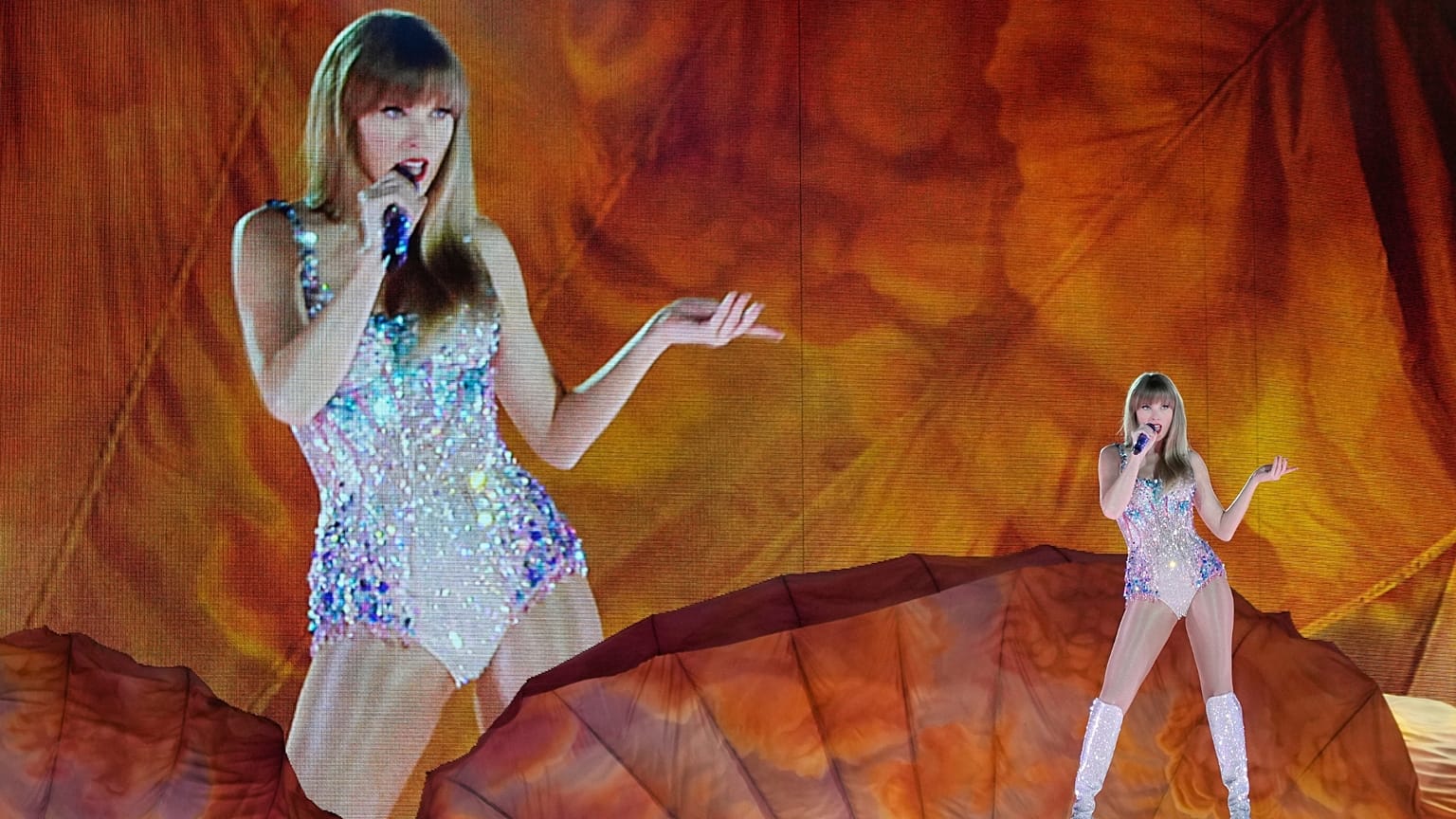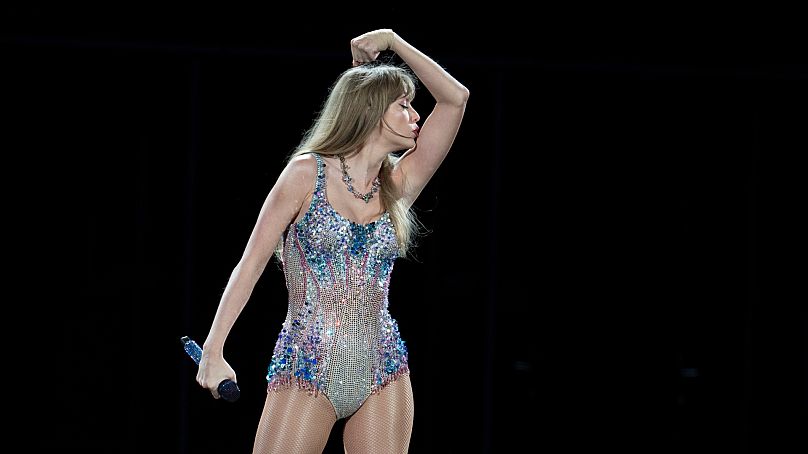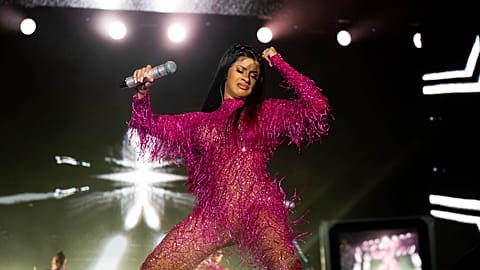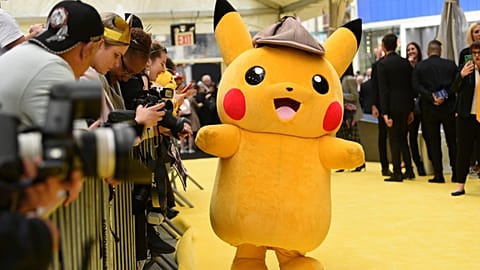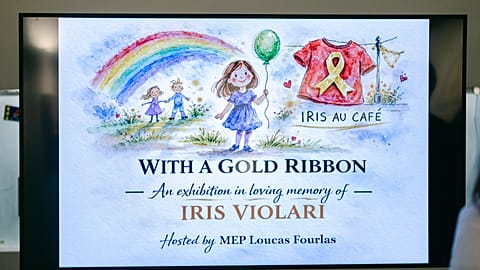Tickets to pop concerts have gotten out of hand. It all seemed to start with the myriad complexities barring fans from easily buying tickets to Taylor Swift’s current tour, but the problem has now engulfed Beyoncé, Coldplay and almost all stadium pop acts.
There was once a time that seeing your favourite artist perform to thousands of people was affordable.
 ADVERTISEMENT
ADVERTISEMENT
 ADVERTISEMENT
ADVERTISEMENT
Take a trip down memory lane by searching for your favourite legendary pop act and “ticket stub” on eBay. Try it with Elton John — who performed his last ever concert in Stockholm this July — and you’ll find that in 1975, you could see him at London’s Wembley Stadium for just £3.50. That’s £37.56 (€43.91) in today’s money.
For context, this wasn’t Elton before he was a star. This was Elton at the height of his popularity, playing the biggest venue in the country with a setlist including hits like ‘Rocket Man’, ‘Candle in the Wind’, and ‘Bennie and the Jets’. If that isn’t enough, Elton was playing an event called Mid Summer Music that included acts like The Beach Boys, Eagles, and Rufus & Chaka Khan.
The idea that you could see such an incredible set of artists in their prime for such an affordable figure seems fictional today. Such is the situation for music fans in 2023.
Ticketmaster vs. the fans
Taylor Swift in 2023 is a reasonable analogue to Elton’s cultural status in 1975. When tickets went on sale for the North American leg of Swift’s Eras tour in 2022, the demand was so high that Ticketmaster crashed.
When Ticketmaster was working though, its “dynamic pricing” algorithm responded to the incredible demand to push the value of tickets into completely unattainable prices.
Fans were unsurprisingly upset at the situation. Several went without tickets and many of those with had paid vastly over expected prices to get a chance to see the singer. A group of 26 fans even filed a class action civil suit against Ticketmaster accusing them of fraud, price fixing, and antitrust violations.
Swift herself was furious with Ticketmaster. “It's truly amazing that 2.4 million people got tickets, but it really pisses me off that a lot of them feel like they went through several bear attacks to get them,” she wrote on Instagram, adding that she’d been assured by the distribution company they could cope with the demand.
When it came time for the European leg of the tour’s ticket sales, Swift attempted to solve the problem. This time fans could register in advance for the tickets they were interested in. Those who had bought the star’s 10th studio album ‘Midnights’ upon release last year would have special access to a pre-sale code. For those without, the day of the sale still resembled a James Bond scene where too few live bodies are fed to a pool of voracious piranhas.
If you were lucky enough to get through to a ticket sale screen, you may have not been given the option to choose an affordable ticket, instead confined to tickets out of your budget or the grim acceptance that all your work has been in vain.
There are reports of people paying around £350 (€410) for tickets. Not tickets for VIP sections or the best views, just for ordinary tickets in the large seating areas. Some who did get affordable tickets found out that they were sat in the area behind the stage, stuck staring at the back of the elaborate soundstage rig taking up their part of the stadium.
We’ve come a long way since those £3.50 Elton John tickets.
Price gouging
Taylor Swift has been at the centre of the current conversation around engorged ticket prices. It’s important to point out that this phenomenon isn’t exclusive to her though.
As mentioned earlier, tickets to the stadium tours of Beyoncé, Coldplay, Madonna and even Elton’s final tour have all been plagued by complicated booking processes and prohibitively expensive prices.
It’s also worth noting that touring has never been so expensive for musicians. The global inflation crisis affects every area of touring, from energy to transport. For British artists touring in the EU, they’ve also had to take increased red tape as a result of Brexit into their sums.
Another consideration is that few artists make meaningful money from record sales anymore. Thanks to streaming services like Spotify barely providing artists with residuals, touring and merchandise are their primary revenue streams. This one doesn’t really apply to Swift though, whose popularity has made ‘Midnights’ the biggest-selling vinyl of the century.
Final point in the artists’ favour, many of these large scale tours have incredible production values. Anyone who has seen the countless videos of Swift’s Eras tour or Beyoncé’s Renaissance tour will attest to the impressive quality of props, choreography and outfits.
And yet, with all these admission, it still feels like these major pop stars are expecting too much of their fans financially. There are understandable reasons for ticket prices to rise, but expecting to pay multiple hundreds of pounds for a chance to attend is orders of magnitude more expensive than it used to be. Pre-pandemic, it was possible to see Muse at Wembley Stadium for £45 in 2009, or £68 (€79) today. Radiohead in 2012 were £70, or £95 (€110) today.
More recently, seeing Kendrick Lamar play in Amsterdam last year included just as many impressively choreographed numbers that his peers above featured, yet tickets were €89,60 for standing, €78,40 for the best non-premium seating. Up in the nosebleeds you could even get tickets for as little as €56.
Similarly, The Cure’s Robert Smith has taken a stance against grossly inflated ticket prices. The most recent tour of the legendary goth band was the best-selling and most profitable one they’ve ever had. The Cure didn’t have to rely on price gouging to achieve that though. In fact, after learning of similar events to plague Swift’s North American ticketing fiasco, the band worked with Ticketmaster to offer up to a $10 (€9) refund to punters. On top of that, Smith ensured that the tour’s tickets were all affordable, costing an average of $68.54 (€62.32), around 37% less than other similar artists.
While the exact dynamics at play when budgeting for a Taylor Swift tour compared to a Kendrick Lamar or The Cure tour remain a mystery (and I can’t make any definitive statements about the way Swift is balancing her books compared to Lamar), I can’t help but feel that many of these current engorged prices are the result of one thing above all mitigating factors: greed.
Using Swift as an example — although she is definitely not alone in this — her tour is one of the highest selling in history. She has one of the highest selling physical releases of the century, she continues to re-release her own albums (for mostly the right reasons), regularly releases new editions of the same albums (many of these special editions are the only way to guarantee tour tickets), and she is likely one of the few artist able to make some money from Spotify streams.
Calling this out as a corporate machine designed to print money into Swift and her team’s pockets doesn’t take much of a leap. Sure there’s an artist underneath all of this, but with each hoop fans are forced to jump through, the artistry is obscured more and more.
The worst part of it all is the fans lose out. For those able to get tickets, they spend an amount that — in a cost-of-living crisis — will likely ensure they can’t afford to see another artist of that scale for a long while. There’s also the added pressure of enjoying the concert when you do get there. It’s one thing to walk away from a gig after spending a reasonable amount with the feeling it was only okay. When it’s all of your disposable income for a month, you’re far more likely to feel like you’re owed the concert of your life.
What’s the solution? It’s either in fans putting their feet down and flatly refusing to splash out. Or it’ll take more artists taking Smith’s position. Until then, head on down to a local music venue to check out an independent act for the price of a drink.














